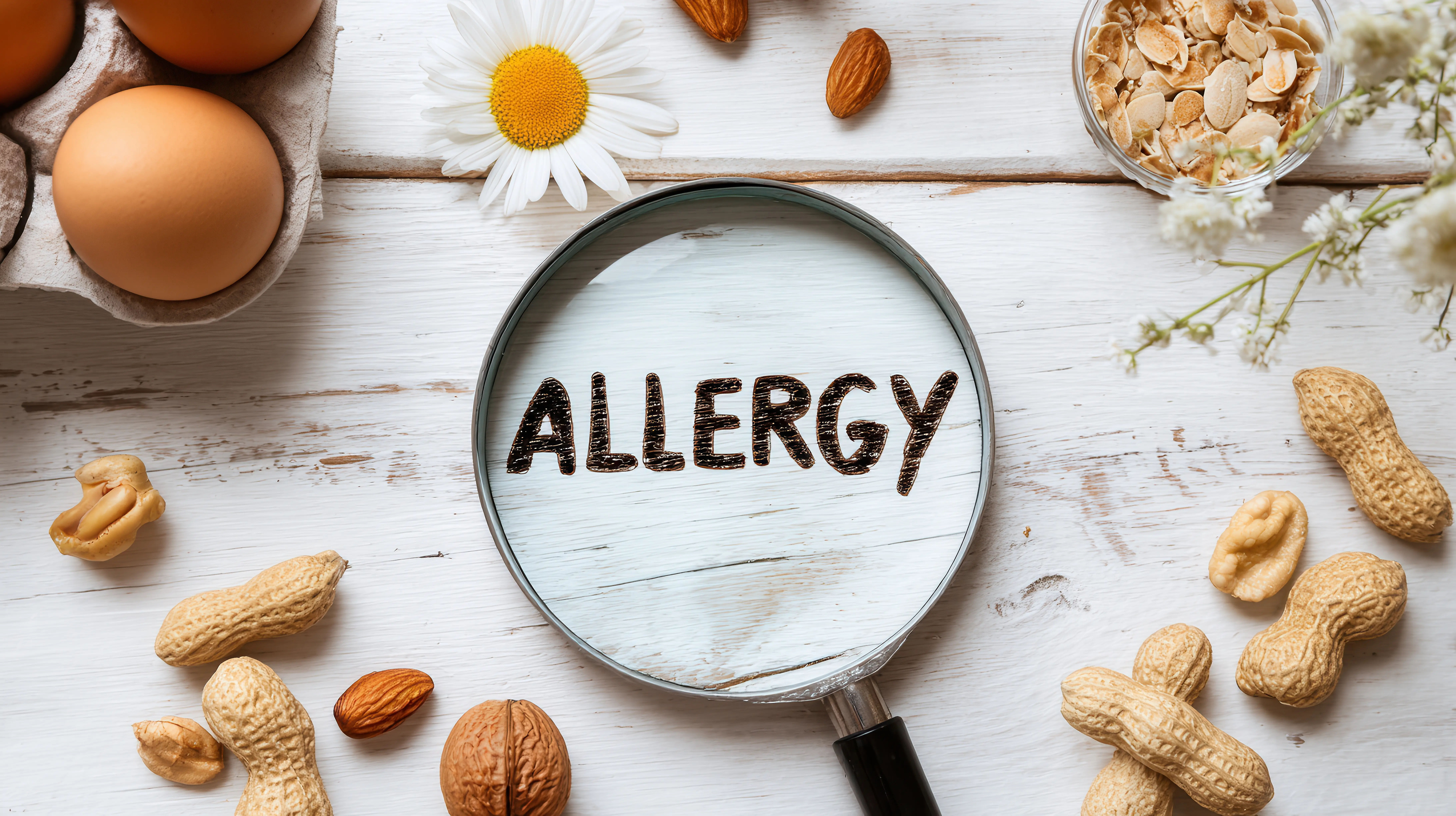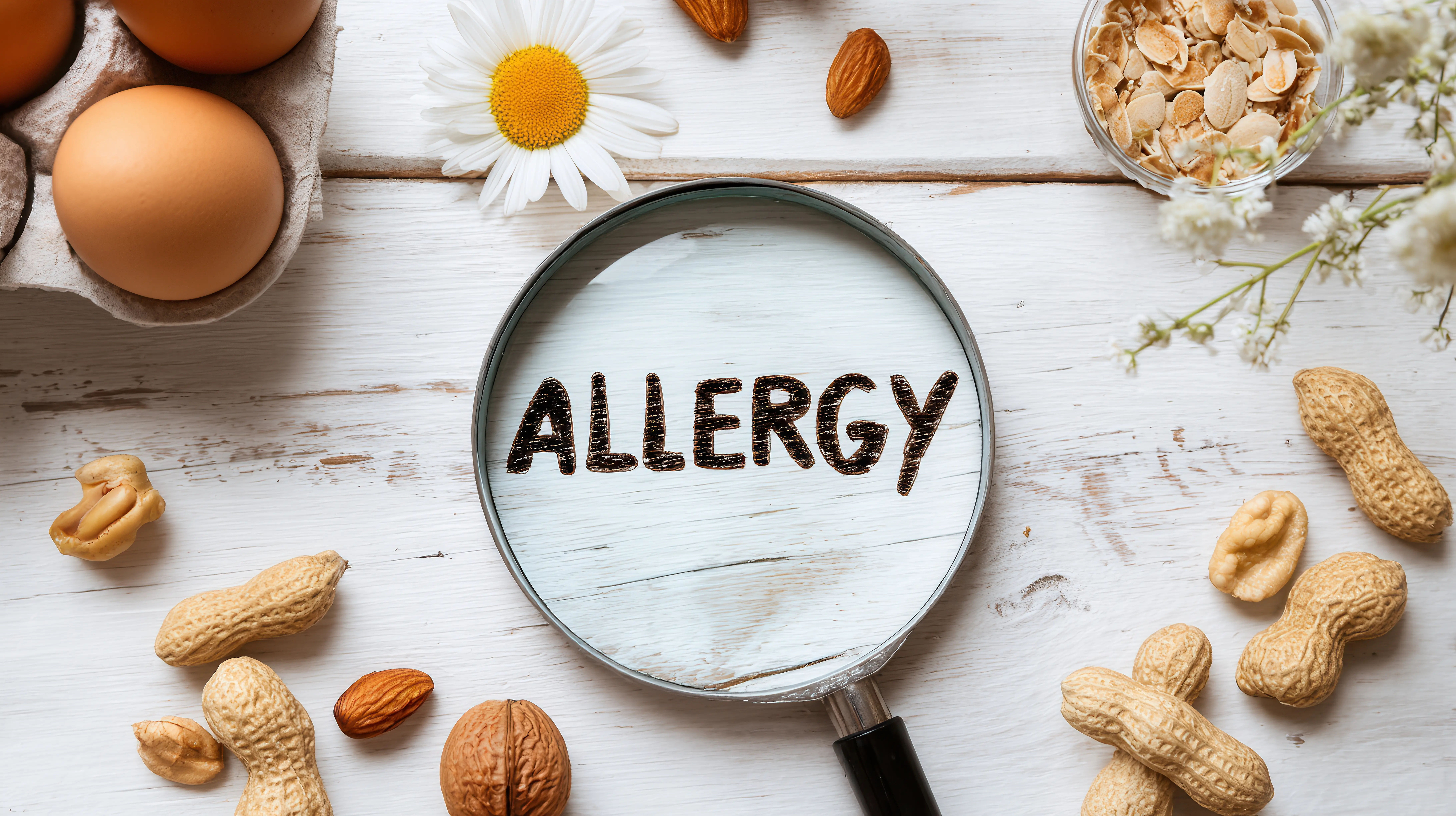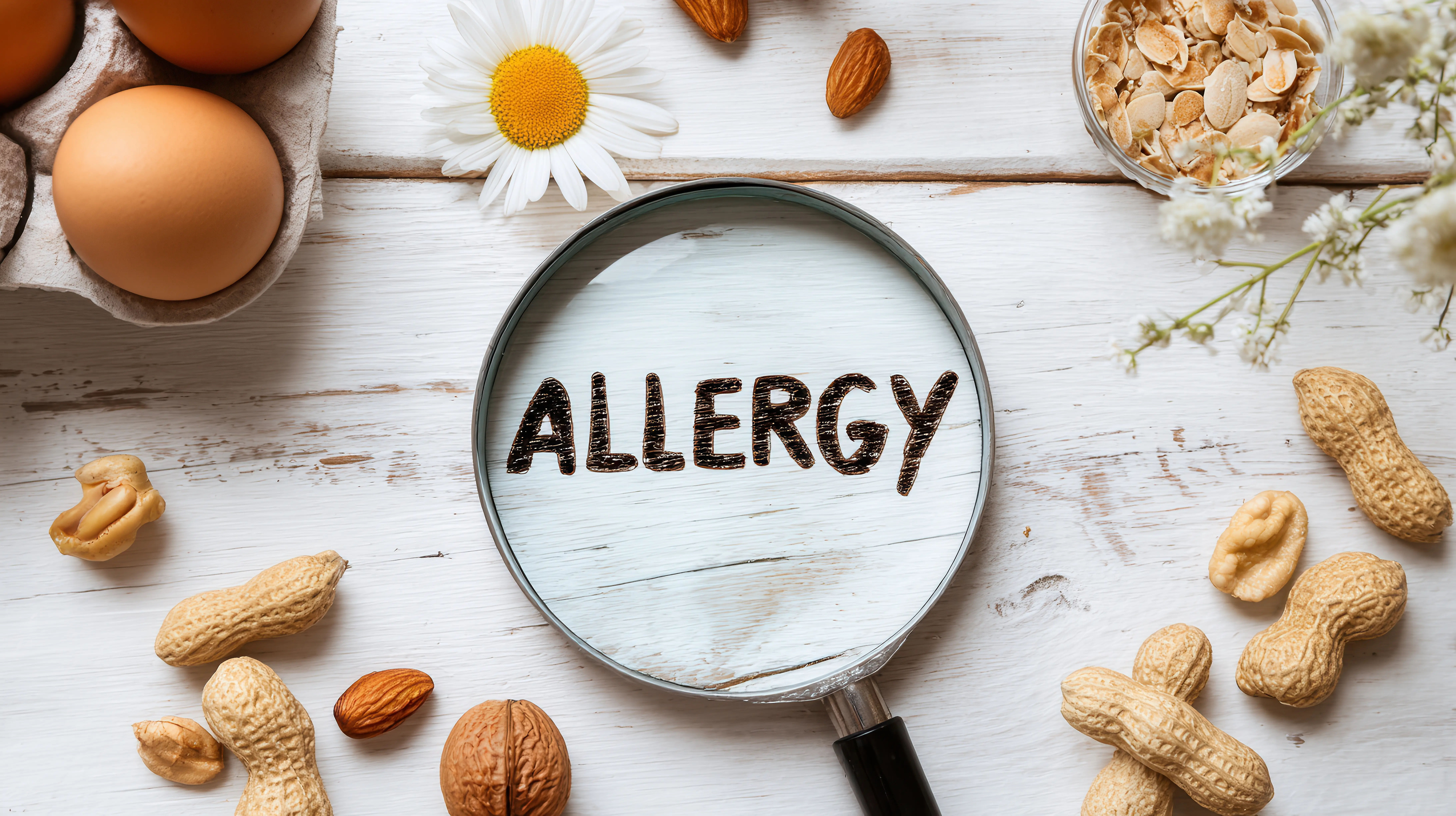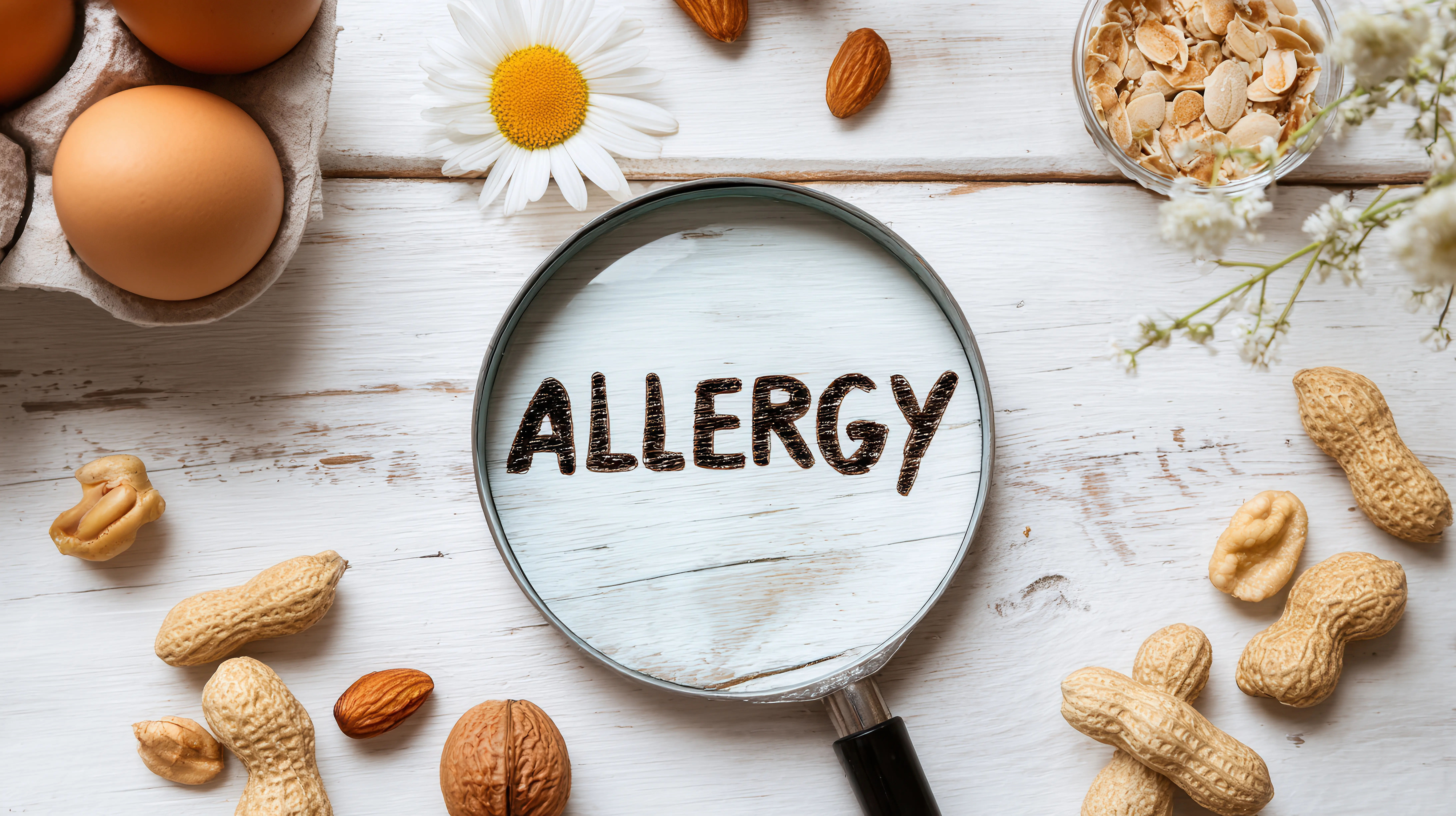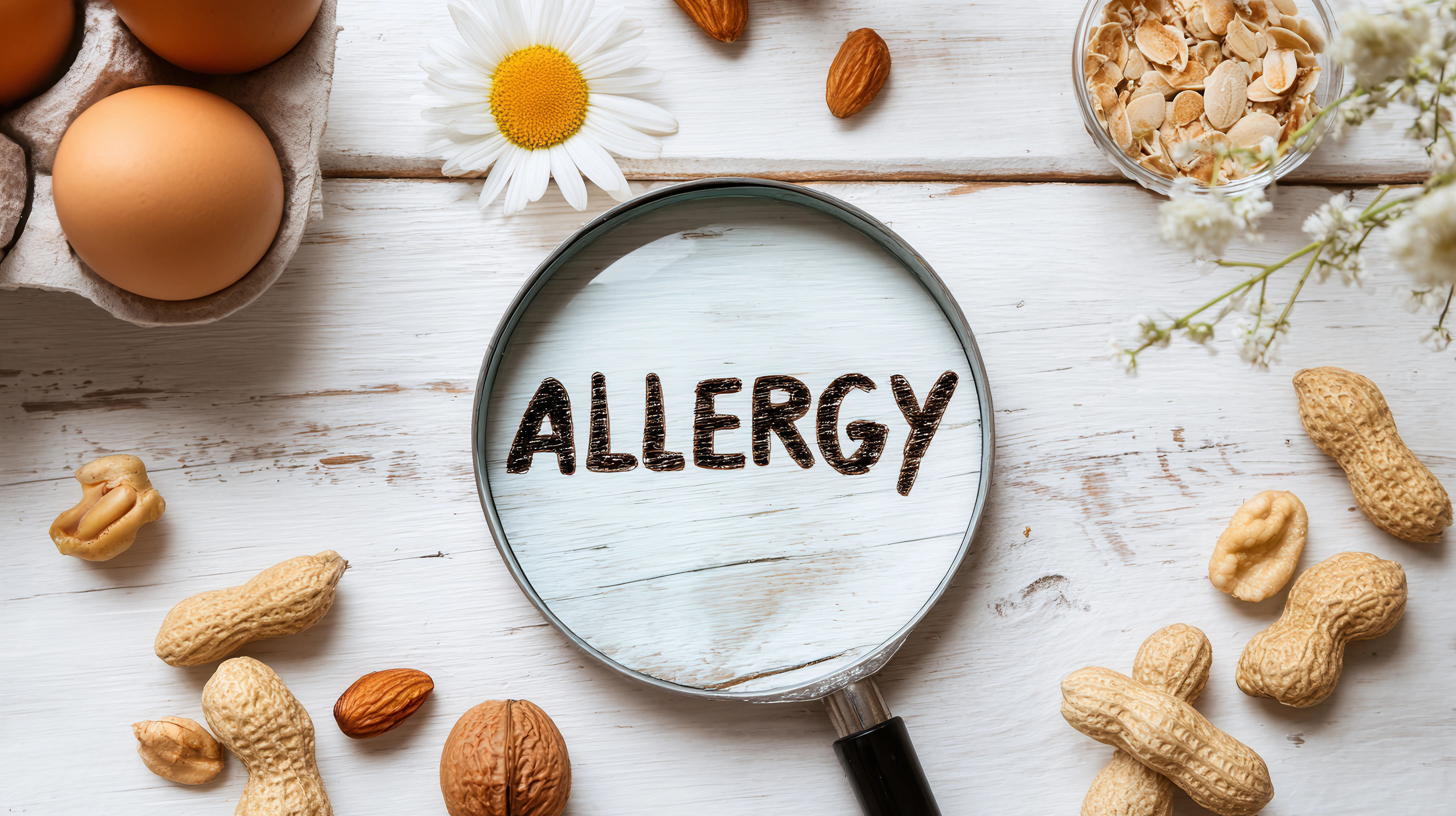Your Visual Guide to Allergies: Symptoms, Triggers & Relief
Think you have allergies? This infographic guide reveals the most common triggers, symptoms, and tips for managing your reactions. Find out what's really making you sneeze and itch.

Written by Dr. Rohinipriyanka Pondugula
Reviewed by Dr. J T Hema Pratima MBBS, Fellowship in Diabetes Mellitus
Last updated on 13th Jan, 2026
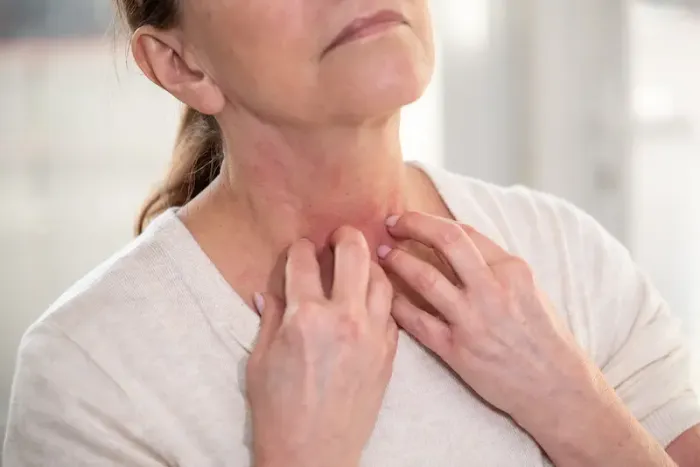
Do you start sneezing the moment spring blooms? Does your skin itch after eating certain foods? You're not alone. Millions of people worldwide experience allergies, a common yet often misunderstood condition. This infographicstyle guide is designed to be your goto visual resource for understanding what allergies are, what causes them, and how you can find effective relief. We'll break down complex medical information into easy-to-digest sections, complete with actionable tips and clear comparisons. Whether you're suspecting you have a new allergy or managing a longstanding one, this guide will help you navigate your symptoms and take back control of your health. Let's dive in and decode your body's signals together.
What Exactly Is an Allergy? Your Body's False Alarm
An allergy is not a sign of a weak immune system; it's quite the opposite. It's a case of mistaken identity where your hypervigilant immune system overreacts to a harmless substance, treating it like a dangerous pathogen.
The Immune System's Mistaken Identity
For most people, inhaling pollen or petting a cat is uneventful. But for someone with an allergy, their immune system identifies these substances (called allergens) as foreign invaders. Upon first exposure, it produces antibodies called Immunoglobulin E (IgE). These antibodies lie in wait, primed for the next encounter. This process is known as sensitization.
The Role of Histamine: Cause of the Chaos
When you're exposed to the allergen again, these IgE antibodies signal your immune cells to release a flood of chemicals, most notably histamine. Histamine is the primary culprit behind your most annoying allergy symptoms. It causes blood vessels to expand (leading to swelling and redness), triggers mucus production (a runny nose), and irritates nerve endings (causing itching). Understanding this histamine response is key to understanding how allergy medications work.
Spot the Signs: A Symptom Checker Infographic
Allergic reactions can manifest in various ways, depending on the allergen and the individual. Here’s a visual checklist of common symptoms.
Concept for Infographic 1: "Is It Allergies?" Symptom Chart
Visual: A central figure of a person with callout boxes pointing to different body parts.
Nose: Sneezing, runny nose, congestion, itchy nose.
Eyes: Red, watery, itchy eyes ("allergic shiners" dark circles under eyes).
Throat & Lungs: Scratchy throat, coughing, wheezing, shortness of breath.
Skin: Hives, eczema, general itching, swelling.
Head: Sinus pressure, headaches.
Alt Text: Infographic detailing common allergy symptoms affecting the nose, eyes, throat, lungs, and skin.
Is It Allergies or a Cold? A Side by Side Comparison
This is a common point of confusion. Use this guide to tell the difference:
Onset: Allergies begin immediately after exposure to an allergen. A cold develops over a few days.
Duration: Allergy symptoms last as long as you're exposed to the trigger (weeks or months). A cold typically clears up in 710 days.
Symptoms: Itchy eyes and throat are hallmarks of allergies. A cold is more often associated with body aches, fever, and a sore throat.
Mucus: Allergy mucus is typically clear and watery. Cold mucus often becomes thick and yellow or green.
Consult a General Physician for the best advice
Recognizing Severe Reactions: Anaphylaxis Warning Signs
A severe, life-threatening allergic reaction called anaphylaxis requires immediate medical attention. Signs include:
Difficulty breathing and wheezing
Swelling of the tongue and throat
Tightness in the chest
A rapid, weak pulse
Dizziness or fainting
A sense of impending doom
If you or someone else experiences these symptoms, use an epinephrine autoinjector (EpiPen) if available and call emergency services immediately.
The Usual Suspects: A Guide to Common Allergy Triggers
Allergens are everywhere, but they can be categorized. Identifying your trigger is the first step toward management.
Concept for Infographic 2: "The Allergy Triggers Wheel"
Visual: A pie chart or wheel divided into sections for different allergen types.
Seasonal (Pollen): Icons for trees (spring), grass (summer), weeds (fall).
Perennial (Indoor): Icons for dust mites (on a bed), mold (in a damp corner), pet dander (on a cat/dog).
Food: Icons for common allergens: peanuts, milk, eggs, shellfish, soy.
Other: Icons for a bee (insect stings), a pill (medication), and a latex glove.
Alt Text: Infographic wheel showing the four main categories of allergy triggers: Seasonal, Indoor, Food, and Other.
Getting a Diagnosis: How to Know for Sure
If over-the-counter remedies aren't enough or your symptoms are significantly impacting your life, it's time to seek a professional diagnosis.
When to See a Doctor?
Consult a doctor if your symptoms are persistent, severe, or if you suspect a food allergy. If your condition does not improve after trying basic methods, book a physical visit to a doctor with Apollo24|7 for a thorough evaluation. They can refer you to an allergist for specific testing.
Skin Prick Test: The Standard Method
This is the most common test. A small amount of suspected allergens is pricked into your skin's surface. If a small red, itchy bump (like a mosquito bite) appears within 1520 minutes, it indicates an allergy. It's quick, relatively painless, and highly effective for identifying numerous triggers at once.
Blood Tests (Specific IgE)
A blood test can measure the amount of IgE antibodies your body produces in response to specific allergens. Apollo24|7 offers convenient home collection for tests like specific IgE panels, which can be useful if you have a skin condition, are on certain medications, or are at risk of a severe reaction to skin testing.
Taking Control: Your Allergy Management Plan
Managing allergies is a multistep approach, from avoidance to treatment.
Avoidance: The First Line of Defense
The best way to prevent a reaction is to avoid the trigger. This includes:
Pollen: Check daily pollen counts, keep windows closed, shower after being outdoors.
Dust Mites: Use allergenproof mattress and pillow covers, wash bedding in hot water weekly.
Pet Dander: Keep pets out of the bedroom, bathe them regularly, use a HEPA air purifier.
OvertheCounter Relief
Many effective medications are available without a prescription:
Oral Antihistamines: (e.g., cetirizine, loratadine, fexofenadine) Block histamine to relieve sneezing, itching, and runny nose.
Nasal Corticosteroids: (e.g., fluticasone, budesonide) are the most effective medicine for pollen allergy and are excellent at reducing inflammation and congestion. They work best with consistent use.
Decongestants: (e.g., pseudoephedrine) Provide short-term relief for nasal stuffiness but should not be used long term.
For persistent or complex allergy cases, a doctor may prescribe stronger nasal sprays, allergy asthma medications, or recommend immunotherapy.
Living Well with Allergies: Tips for Home, Work, and Travel
Living with allergies doesn't mean you can't enjoy life. With careful planning, you can minimize your exposure and reactions.
Create a Safe Haven: Make your bedroom an allergy-free zone. Focus on reducing dust and dander there above all else.
Be a Label Detective: For food allergies, meticulously read ingredient lists every time, as formulations can change.
Communicate: When dining out, clearly inform staff of your food allergies. Don't be shy about asking detailed questions.
Prepare for Season: Start taking your allergy medication a week or two before the season typically begins for better control.
Carry Your Meds: Always keep your emergency medication, like an antihistamine or epinephrine autoinjector, with you.
Conclusion: Breathe Easy and Live Fully
Allergies can be a frustrating and debilitating part of life, but they are also highly manageable. By understanding your triggers, recognizing your symptoms, and implementing a solid management plan that includes avoidance strategies and the right medications, you can significantly reduce their impact. Remember, you don't have to just suffer through it. If your symptoms are disrupting your sleep, work, or daily activities, it's a sign to seek professional help. Consult a doctor online with Apollo24|7 for further evaluation and a personalized path to relief. With the right knowledge and tools, you can breathe easier and enjoy every season to its fullest.
Consult a General Physician for the best advice
Consult a General Physician for the best advice

Dr. Chethan T L
General Physician/ Internal Medicine Specialist
5 Years • MBBS, MD, DNB (General Medicine)
Bengaluru
Apollo Medical Center, Marathahalli, Bengaluru

Dr. Rajib Ghose
General Physician/ Internal Medicine Specialist
25 Years • MBBS
East Midnapore
VIVEKANANDA SEBA SADAN, East Midnapore

Dr Vinay Kumar A V
Nephrologist
8 Years • MBBS, MD - General Medicine, DM - Nephrology
Bilaspur
Apollo Hospitals Seepat Road, Bilaspur
Dr Prachi Sankhe
General Physician/ Internal Medicine Specialist
8 Years • MBBS, MD (Internal Medicine)
Mumbai
Apollo Hospitals CBD Belapur, Mumbai

Dr. Ajay K Sinha
General Physician/ Internal Medicine Specialist
30 Years • MD, Internal Medicine
Delhi
Apollo Hospitals Indraprastha, Delhi
(200+ Patients)
More articles from Food allergy
Frequently Asked Questions
1. Can you develop allergies as an adult?
Yes, adult-onset allergies are very common. You can develop an allergy to something you had no problem with your entire life due to changes in your immune system, environment, or exposure levels
2. What is the best natural remedy for allergy relief?
While not a replacement for medical treatment, some people find relief with saline nasal rinses (like a neti pot) to flush out allergens, using HEPA air filters, and consuming local honey (though scientific evidence for honey is limited). Always discuss natural remedies with your doctor first.
3. Are there any permanent cures for allergies?
Allergy immunotherapy (allergy shots or sublingual tablets) is the closest thing to a long-term cure. It involves exposing your body to gradually increasing amounts of an allergen to desensitize your immune system. Treatment can take 35 years but often provides lasting relief.
4. How can I tell if my child has allergies?
Look for persistent coldlike symptoms that last for more than a week or two, frequent rubbing of the nose or eyes (the 'allergic salute'), dark circles under the eyes, and a crease across the nose bridge. Recurrent eczema or hives can also be a sign. A pediatrician or allergist can provide a proper diagnosis.
5. What's the difference between a food allergy and a food intolerance?
A food allergy involves the immune system and can cause severe, life-threatening reactions (like anaphylaxis) even to tiny amounts of the food. A food intolerance (e.g., lactose intolerance) involves the digestive system and causes discomfort (like bloating or diarrhea) but is not life threatening.
